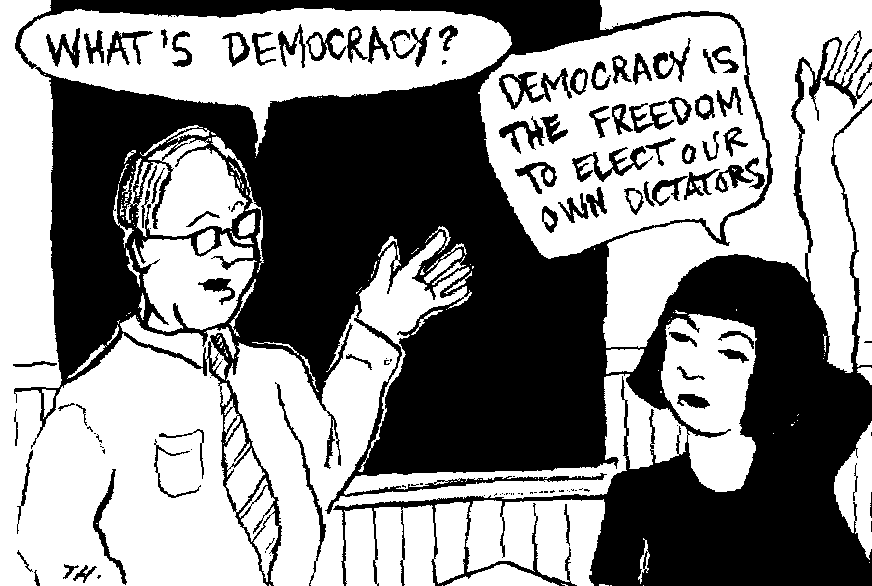
When given the topic, “My democracy, my write”, the first thing that came to mind was what does democracy mean? And is democracy the best form of governance? Democracy, in its ideal form means a lot to me, brings a lot of hope and somewhere, also looks like the only fair way of governance we can have; yet, the way its real picture comes out is murky, to say the least.
It comes with its own drawbacks, yes, but then can we imagine being ruled by dictators? Can we imagine being enslaved by another nation, just because it happens to be more powerful? Can we imagine having a king, who has to be worshipped, has to be appeased and whose word has to be considered the final word just because he happens to come from a royal family?
There is a reason why all this came to an end, a reason why people stood up against it, a reason why nations saw lives abundantly being sacrificed to become democratic, to become a country that is ruled by its people and not a handful of individuals, to become an entity where the leaders are under the people.
The system of ‘one man one vote’ otherwise known as democracy began in 1994 in South Africa. Since the system began it has undergone various trials and tribulations over the centuries and it is quite obvious that the entire democratic world thinks that it is the best way to choose a government. But is it really?

Tshepiso Setokoe, a lecturer at Walter Sisulu University said he felt that democracy is everything but the best form of governance. He further said that democracy has shown us that it is more a romantic ideology than a way to serve the people of Africa.
“History has shown us how democracy has deeply divided the African continent by making a few politically connected elites rich and plundering the rest of the masses into further destitute and in some countries total hunger and economic breakdown. African democracies dating back to Ghanaian independence in the late 1950s were based on democratic principles and yet they came short in terms of what the romantic ideology was set to achieve.”
Bomikazi Rasmeni, a Building Science student at Nelson Mandela Metropolitan University said: “The democratic system is good only if some way could be found to educate every voter on the importance of what he or she is doing. Not everyone is able to understand the workings of government and the democratic system allows almost anyone to stand for government.”
She further went on to say that people are easily persuaded by fiery speeches and sweet talk which accounts for some of the disasters that are often voted in as leaders.
Nolubabalo Yantolo, a journalism student at Walter Sisulu University said: “The workings of democracy are seen to be short changed in a country where the ruling party is advocating constitutionally offensive legislations such as the Protection of Information Bill and the Traditional Courts Bill.”
In spite of all the weaknesses of the democratic system, the alternatives, communism, oligarchy, dictatorship, to name a few have led the world to disasters of great proportion. History has shown in cases such as Castro’s Cuban, Communism in China under Mao, and the Eastern Bloc how less democratic forms of governance led to gross human rights violations, perpetuation of propaganda and suppression of people’s independence. Moreover, we can see that if people can be educated, democracy is a workable system. The problem then lies in directing attention at educating the voters. In spite of all its disadvantages, democracy is thus far the only system which listens to every citizen in the country. It is the only system where the common man has power. In the absence of anything better, the ‘one man one vote’ system is the best system we have.
Sources:
Bomikazi Ramseni, Building Science student, Nelson Mandela Metropolitan University
Nolubabalo Yantolo, journalism student, Walter Sisulu University
Tshepiso Setokoe, lecturer Walter Sisulu University
[Accessed 30/05/2012]
[Accessed 30/05/2012]

No comments:
Post a Comment